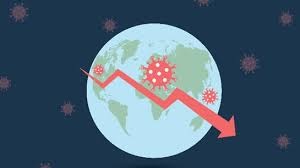By Abdullahi M. Yahie
The novel coronavirus COVID-19 has undoubtedly caused havoc in the world in an unprecedented manner. There are, many, however, who may nonchalantly show a feeling of déjà vu. It seems like we’ve been down this road before with SARS, EPOLA, MERS and the swine flu. Based on exiting literature, SARS, MERS and COVID-19 are all respiratory illnesses that are caused by the same large family of viruses called coronavirus. Coronaviruses are actually quite common. They are the source of many of the common colds that people get and recover from every day.

Africa remains the region least affected in terms of infection and loss of lives – so far. Old age people with existing health conditions such as heart diseases, diabetic, respiratory infection, etc. were the most affected people in high infection countries such USA, Italy, UK, and Spain. It is believed by many that the lower incidence in Africa could be attributed to its young population in which 80% are below the age of 35.
Statistics on deaths due to COVID 19 in Africa is scanty and not that reliable. Recently a Government official stated that Mogadishu health authorities recorded over 500 deaths across the city in just the past two weeks. Using Somalia demographic data from the web, I made an attempt to calculate the crude death rate for Mogadishu or the average annual number of deaths during a year per 1,000 population.
In 2019, death rate for Somalia was estimated at 10.7 per 1,000 people. The rate fell gradually from 23.1 per 1,000 people in 1970 to 10.7 per 1,000 people in 2019. If we take Mogadishu with an estimated population of 4 million, the number of natural deaths in Mogadishu in a given day should be apprixmatly 89 persons or approximately 1,700 persons in two weeks. It is logical, therefore, the excess over these number is used as a measure of death that could be attributed to COVID 19. Cemetery workers could also be a useful source of information on daily burials.
What is in stake for Somalia
The economic and financial impact of COVID 19 would be colossal due to the country’s high dependence on donors and foreign aid. This crises comes, however, at a time when the source countries were hit hard and are adopting inward looking polices. More importantly, the endemic created a glut in the Money Transfer system commonly known as “Hawala.”
The World Bank projects that the global remittance would decline by 25% due to COVID 19 which caused havoc in the developed world. The New Humanitarian of 23 April 2020, estimates that “in Somalia the values of remittances is believed to be two to three times greater than the humanitarian aid funds.” Where do we go from here – four critical areas of intervention are proposed:
(i) The Hawala glitch- a wakeup call
Following restriction on money transfer through international banks , the Hawala system relied on manual moving of the greenbags between its main hubs which are scattered in all regions of the world. With the closer of international borders and airports, the Hawala system is hit at the core. It is estimated that approximately more than $150 million is holdup in their regional hubs. Prolonged closer of borders would exacerbate the situation and could result the meltdown of this unique financial system with incalculable consequences.

Now, it has emerged that many countries are repatriate their citizens who are stranded overseas. What about the Somali Government using it good diplomatic offices to “repatriate” the monies owed to Somalis as long as Hawala agencies are willing to meet the cost. In the short run, however, it is highly advisable that the Hawala system is revisited to safeguard peoples deposits.
(ii) Likely Affected Population
The plague appears to be more of an urban phenomenon, particularly density populated neighborhoods. In comparison, its impact in rural areas has been relatively negligible. It also disproportionally infect the elderly compared to the majority of the population which is below the age of 35. Vulnerable communities is urban centers such as Returnees and IDPs will be mostly hard hit due to their dependence on donor support. Business has been as usual since advent of the crises.
The Mogadishu sea port and other ports are operating, facilitating import of goods. In the short run, it is plausible that some in the informal sector, mainly youth, may become redundant due to slowdown in economic activities. Prolonged closure of borders, would however, worsen the lot of the youth as unemployment increases with serious negative impact on the household. Public work programs on cash for work basis cold be a viable avenue at least in the short run.
(iii) Public Health/Hospitals
An important lessons that emerged from current crises is the overriding importance of the public health system at time of endemics. In both the UK and US, the underfunding of the health sector and long neglect of the public hospitals resulted in horrendous lost of life. The Mayor of New York said in a recent briefing, “in recent years there has been a debate to close a number of public hospitals and lay off many doctors and nurse. Now we can see, the vital importance of such institution.”
In the UK, private citizens and mobilizing funding for the National Health Services (NHS). In these and other western countries (donors), there is a strong recognition on the importance of public hospitals. Given the deplorable status of the health sector in Somalia, establishing model hospitals on public private partnership (PPP) premises could attract funding from traditional donors.
(iv) Food security
In the short run, Somalia could not be in a better position. Movement of goods has not been affected. It is also common that businesses stock food and other goods before Ramadan and the Hagaa season when maritime transport holts during June-September. The skies have been also generous of late and there is potential for a good harvest during June -September. In the short run, therefore, Somalia may not phase food crises. There will be, however, urgent need for advance planning in the long run. For instance, Government to buy the excess in the market and establish grain storage facilities.
Finally, an Irish economist recently suggested that the most feasible way to tackle the economic crises caused by COVI 19 is to drop money from the sky or what is now known the “Helicopter Money.” There is also an emerging global attitude of saving one’s own nation and focusing on individual states. That is why there is talk of the “New World Order” after COVID 19.
In light of the above, it is about time to be realistic, longsighted and think strategic.
Abdullahi M. Yahie
Email: [email protected]
————
Yahie is an Economist and a retiree from the African Development Bank (AfDB). He lives in Zanzibar, Tanzania.
We welcome the submission of all articles for possible publication on WardheerNews.com. WardheerNews will only consider articles sent exclusively. Please email your article today . Opinions expressed in this article are those of the author and do not necessarily reflect the views of WardheerNews.
WardheerNew’s tolerance platform is engaging with diversity of opinion, political ideology and self-expression. Tolerance is a necessary ingredient for creativity and civility.Tolerance fuels tenacity and audacity.
WardheerNews waxay tixgelin gaara siinaysaa maqaaladaha sida gaarka ah loogu soo diro ee aan lagu daabicin goobo kale. Maqaalkani wuxuu ka turjumayaa aragtida Qoraaga loomana fasiran karo tan WardheerNews.
Copyright © 2024 WardheerNews, All rights reserved


